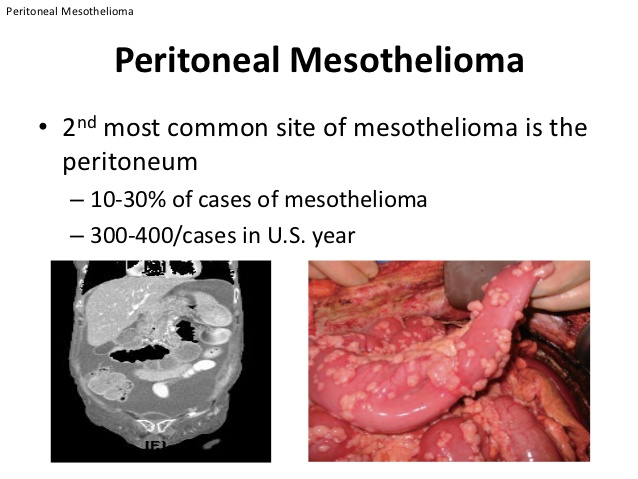Peritoneal mesothelioma is a form of cancer that affects the lining of the abdomen (the peritoneum). It is caused by the ingestion of asbestos fibers.
What is Peritoneal Mesothelioma?
Peritoneal
mesothelioma accounts for 20 to 25 percent of all mesothelioma cases.
It is the most common diagnosis after pleural mesothelioma. Peritoneal
patients have longer life expectancies
than those with other types of mesothelioma. Some studies report
patients living upwards of 5 years after cytoreductive surgery.
How Is Peritoneal Mesothelioma Treated?
-

Cytoreductive Surgery
This is the only surgical option available to those with a peritoneal diagnosis. This surgery has high success rates when it is combined with chemotherapy. -

Chemotherapy
This is the most common treatment for peritoneal mesothelioma. It is sometimes administered directly to the abdomen during surgery. -

Radiation
This is the least invasive treatment option for peritoneal mesothelioma patients. Radiation may be delivered during surgery as well.
